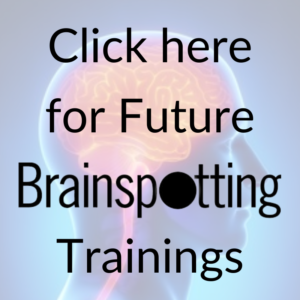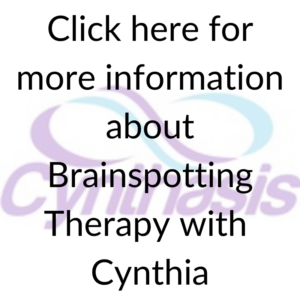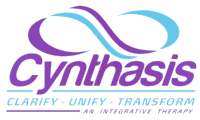What is Brainspotting?
Brainspotting Training is a powerful, focused treatment method that works by identifying, processing and releasing core neurophysiological sources of emotional/body pain, trauma, dissociation and a variety of challenging symptoms. Brainspotting is a simultaneous form of diagnosis and treatment, enhanced with BioLateral sound, which is deep, direct and powerful, yet focused and containing.
of emotional/body pain, trauma, dissociation and a variety of challenging symptoms. Brainspotting is a simultaneous form of diagnosis and treatment, enhanced with BioLateral sound, which is deep, direct and powerful, yet focused and containing.
Brainspotting identifies activated eye positions designated as Brainspots. Located through either one or both eyes, Brainspots are observed from either the “Inside Window” of the clients felt sense and/or the “Outside Window” of the clients’ reflexive responses (i.e., blink, eye twitches or wobbles, pupil dilation, quick breaths and subtle body shifts).  Students will first learn the phenomenological approach that underpins strategies for Brainspotting, followed by strategies for identifying and processing Brainspots. Attention will be given to the utilization and integration of Brainspotting into ongoing treatment, including highly dissociative clients. Brainspotting is adaptable to almost all areas of specialization.
Students will first learn the phenomenological approach that underpins strategies for Brainspotting, followed by strategies for identifying and processing Brainspots. Attention will be given to the utilization and integration of Brainspotting into ongoing treatment, including highly dissociative clients. Brainspotting is adaptable to almost all areas of specialization.
Brainspotting provides therapists with powerful tools which enable their patients to quickly and effectively focus and process through the deep brain sources of many emotional, somatic, and performance problems. I welcome you to join me in integrating the power of Brainspotting into your practice.

“Cynthia Schwartzberg was one of the trainers I had the opportunity to work with at this weekend’s Brainspotting training. I had an excellent experience with her as both trainer and clinician, and I believe that she brings a wealth of knowledge to the table around brain/body-based intervention.” RH
To hear an introduction to Brainspotting and how it can help therapists, follow this link to a webinar with Cynthia Schwartzberg, LCSW. https://www.naswnc.org/store/ViewProduct.aspx?id=15661557
Brainspotting is a brain-based therapy based on the hypothesis that specific eye positions designated as “brainspots” activate and access specific areas of the midbrain that allow for the reprocessing and releasing of core neurophysiological reactions to trauma-related and other psychological experiences.
In addition, brainspotting is built on a model that emphasizes therapist-client presence and attunement in the healing process. As an open and integrative model, brainspotting is adaptable to many different areas of specialization and can be integrated with other treatment models.
In this introductory Brainspotting: Phase 1 training, participants will learn four basic brainspotting techniques. In addition, participants will receive an overview of the:
This 3-day Brainspotting Phase Two training is an Intermediate course and will begin with an extensive overview of how to do Brainspotting effectively online in this traumatic time of Covid-19. We will discuss your own Limbic Countertransference during this pandemic and how you can best serve your activated clients. We will review in detail how to do all of the Phase One techniques remotely including: Outside and Inside Window, Gazespotting, and Body Resource Brainspotting.
Trainees will be introduced to five additional Phase Two techniques that are very important and effective for resourcing your clients deeply. This includes One-Eye Brainspotting, Z-Axis-3 Dimensional Brainspotting using close and far, this includes Convergence Therapy which expands the Z-Axis to activate the vagus nerve through the ocular cardiac reflex. This prevents panic attacks and is very effective in reducing activation. In this era of such existential trauma, we will be presenting two advanced Outside Window techniques including “Rolling Brainspotting” with slow eye tracking stopping briefly on each Brainspot. Advanced techniques will also include combined Inside-Outside Brainspotting where both reflexive responses and the client’s sense of highest activation are used together to find Brainspots.
Day 3 will be devoted to the second level of the Advanced Resource Model. This will entail combining the resource aspects of One-Eye and Z-Axis Brainspotting. This addresses working with clients with Very Complex PTSD and those outside of the Brainspotting Window of Tolerance.
Techniques taught with PowerPoint lecture, discussion with Q & A, demonstrations and practicums will be done online.
